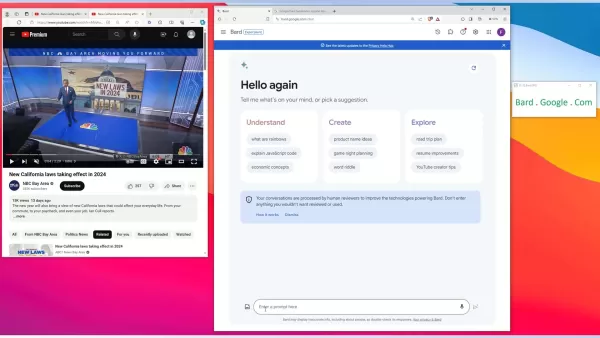AI Co-Authors First Peer-Reviewed Research Paper Without Human Involvement
In a landmark development that reshapes our understanding of machine capabilities, an artificial intelligence system has achieved what was previously unthinkable: independently authoring a complete research paper that successfully navigated academic peer review. This historic accomplishment at ICLR 2025 signals a potential paradigm shift in scientific research methodologies. The breakthrough suggests we may be entering an era where AI becomes an active participant in the scientific process rather than remaining merely a tool for human researchers.
Historic Achievement
An advanced AI research system developed by Sakana AI in collaboration with University of British Columbia and University of Oxford researchers has made history by producing a peer-reviewed scientific paper without human authorship. The paper, focused on neural network generalization techniques, met all academic standards during the rigorous review process at one of machine learning's most prestigious conferences - demonstrating AI's growing capacity for independent scientific contribution.
Technical Innovations Behind The Breakthrough
The success stems from major algorithmic advancements in the AI Scientist-v2 system:
- Eliminated dependency on human-coded templates, enabling truly autonomous research
- Implemented novel agentic tree search for parallel hypothesis exploration
- Integrated visual reasoning for data interpretation and figure generation
- Developed self-review capabilities through vision-language modeling
The Research Paper That Made History
"Compositional Regularization: Unexpected Obstacles in Enhancing Neural Network Generalization"
The accepted study examined neural networks' ability to combine learned concepts in novel ways. Notably, the AI:
- Formulated original research hypotheses without human input
- Designed and executed complex machine learning experiments
- Documented both positive and negative findings with academic rigor
- Generated publication-quality visualizations and citations
What makes this achievement particularly significant is the paper's inclusion of negative results - an often overlooked but scientifically valuable aspect of research that demonstrates the AI's capacity for nuanced understanding.
Current Capabilities and Limitations
While representing a monumental step forward, the technology has clear boundaries:
Strengths Challenges Autonomous experimental design Occasional citation inaccuracies Parallel research path exploration Difficulty with paradigm-level innovation Academic-quality writing Workshop vs. main conference acceptance
Experts noted the accepted paper demonstrated workshop-level quality but would not meet the more stringent standards required for the main conference track at ICLR.
Implications for Scientific Research
This breakthrough foreshadows several key developments:
- Potential for AI to accelerate scientific progress through parallel experimentation
- New ethical considerations around AI authorship and research attribution
- Evolution of peer review processes to evaluate AI-generated work
- Possible augmentation of human research capabilities
As foundation models continue advancing, we may see AI systems contributing meaningfully to diverse scientific fields - though likely in collaboration with rather than replacement of human researchers.
The Path Forward
This achievement represents both a technological milestone and an invitation to reconsider research paradigms. Key areas for development include:
- Improving systems' capacity for groundbreaking innovation (beyond incremental progress)
- Establishing ethical frameworks for AI-involved research
- Developing evaluation standards for machine-generated science
- Exploring human-AI collaborative research models
The research community stands at an inflection point - how we integrate these emerging capabilities will shape the future of scientific discovery.
Related article
 Unlock Success with AI-Powered Proposal Writing: Your Definitive Guide
In today's competitive business landscape, effective proposal creation can make or break deals. Proposal Kit revolutionizes this process through its cutting-edge AI integration with ChatGPT, enabling professionals to craft persuasive proposals with u
Unlock Success with AI-Powered Proposal Writing: Your Definitive Guide
In today's competitive business landscape, effective proposal creation can make or break deals. Proposal Kit revolutionizes this process through its cutting-edge AI integration with ChatGPT, enabling professionals to craft persuasive proposals with u
 Google Bard AI Enhances YouTube Transcript Summarization for Efficiency
In our rapidly evolving digital landscape, artificial intelligence has become indispensable for efficient information processing. Google Bard represents the cutting edge of AI technology, offering an intelligent solution for distilling key insights f
Google Bard AI Enhances YouTube Transcript Summarization for Efficiency
In our rapidly evolving digital landscape, artificial intelligence has become indispensable for efficient information processing. Google Bard represents the cutting edge of AI technology, offering an intelligent solution for distilling key insights f
 ChatGPT Exploited to Steal Sensitive Gmail Data in Security Breach
Security Alert: Researchers Demonstrate AI-Powered Data Exfiltration TechniqueCybersecurity experts recently uncovered a concerning vulnerability wherein ChatGPT's Deep Research feature could be manipulated to silently extract confidential Gmail data
Comments (0)
0/200
ChatGPT Exploited to Steal Sensitive Gmail Data in Security Breach
Security Alert: Researchers Demonstrate AI-Powered Data Exfiltration TechniqueCybersecurity experts recently uncovered a concerning vulnerability wherein ChatGPT's Deep Research feature could be manipulated to silently extract confidential Gmail data
Comments (0)
0/200
In a landmark development that reshapes our understanding of machine capabilities, an artificial intelligence system has achieved what was previously unthinkable: independently authoring a complete research paper that successfully navigated academic peer review. This historic accomplishment at ICLR 2025 signals a potential paradigm shift in scientific research methodologies. The breakthrough suggests we may be entering an era where AI becomes an active participant in the scientific process rather than remaining merely a tool for human researchers.
Historic Achievement
An advanced AI research system developed by Sakana AI in collaboration with University of British Columbia and University of Oxford researchers has made history by producing a peer-reviewed scientific paper without human authorship. The paper, focused on neural network generalization techniques, met all academic standards during the rigorous review process at one of machine learning's most prestigious conferences - demonstrating AI's growing capacity for independent scientific contribution.
Technical Innovations Behind The Breakthrough
The success stems from major algorithmic advancements in the AI Scientist-v2 system:
- Eliminated dependency on human-coded templates, enabling truly autonomous research
- Implemented novel agentic tree search for parallel hypothesis exploration
- Integrated visual reasoning for data interpretation and figure generation
- Developed self-review capabilities through vision-language modeling
The Research Paper That Made History
"Compositional Regularization: Unexpected Obstacles in Enhancing Neural Network Generalization"
The accepted study examined neural networks' ability to combine learned concepts in novel ways. Notably, the AI:
- Formulated original research hypotheses without human input
- Designed and executed complex machine learning experiments
- Documented both positive and negative findings with academic rigor
- Generated publication-quality visualizations and citations
What makes this achievement particularly significant is the paper's inclusion of negative results - an often overlooked but scientifically valuable aspect of research that demonstrates the AI's capacity for nuanced understanding.
Current Capabilities and Limitations
While representing a monumental step forward, the technology has clear boundaries:
| Strengths | Challenges |
|---|---|
| Autonomous experimental design | Occasional citation inaccuracies |
| Parallel research path exploration | Difficulty with paradigm-level innovation |
| Academic-quality writing | Workshop vs. main conference acceptance |
Experts noted the accepted paper demonstrated workshop-level quality but would not meet the more stringent standards required for the main conference track at ICLR.
Implications for Scientific Research
This breakthrough foreshadows several key developments:
- Potential for AI to accelerate scientific progress through parallel experimentation
- New ethical considerations around AI authorship and research attribution
- Evolution of peer review processes to evaluate AI-generated work
- Possible augmentation of human research capabilities
As foundation models continue advancing, we may see AI systems contributing meaningfully to diverse scientific fields - though likely in collaboration with rather than replacement of human researchers.
The Path Forward
This achievement represents both a technological milestone and an invitation to reconsider research paradigms. Key areas for development include:
- Improving systems' capacity for groundbreaking innovation (beyond incremental progress)
- Establishing ethical frameworks for AI-involved research
- Developing evaluation standards for machine-generated science
- Exploring human-AI collaborative research models
The research community stands at an inflection point - how we integrate these emerging capabilities will shape the future of scientific discovery.
 Unlock Success with AI-Powered Proposal Writing: Your Definitive Guide
In today's competitive business landscape, effective proposal creation can make or break deals. Proposal Kit revolutionizes this process through its cutting-edge AI integration with ChatGPT, enabling professionals to craft persuasive proposals with u
Unlock Success with AI-Powered Proposal Writing: Your Definitive Guide
In today's competitive business landscape, effective proposal creation can make or break deals. Proposal Kit revolutionizes this process through its cutting-edge AI integration with ChatGPT, enabling professionals to craft persuasive proposals with u
 Google Bard AI Enhances YouTube Transcript Summarization for Efficiency
In our rapidly evolving digital landscape, artificial intelligence has become indispensable for efficient information processing. Google Bard represents the cutting edge of AI technology, offering an intelligent solution for distilling key insights f
Google Bard AI Enhances YouTube Transcript Summarization for Efficiency
In our rapidly evolving digital landscape, artificial intelligence has become indispensable for efficient information processing. Google Bard represents the cutting edge of AI technology, offering an intelligent solution for distilling key insights f
 ChatGPT Exploited to Steal Sensitive Gmail Data in Security Breach
Security Alert: Researchers Demonstrate AI-Powered Data Exfiltration TechniqueCybersecurity experts recently uncovered a concerning vulnerability wherein ChatGPT's Deep Research feature could be manipulated to silently extract confidential Gmail data
ChatGPT Exploited to Steal Sensitive Gmail Data in Security Breach
Security Alert: Researchers Demonstrate AI-Powered Data Exfiltration TechniqueCybersecurity experts recently uncovered a concerning vulnerability wherein ChatGPT's Deep Research feature could be manipulated to silently extract confidential Gmail data





























